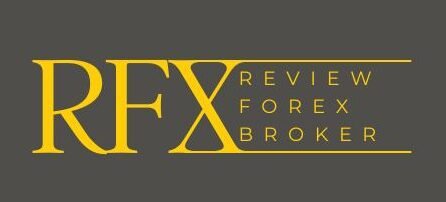The forex trading world is ripe with opportunities, but it’s also fraught with risks, including scams and fraudulent brokers. Identifying and avoiding forex broker scams is crucial for protecting your investments and ensuring a safe trading experience. This blog provides practical tips and strategies to help you spot red flags and choose a reputable forex broker.
- Research Broker Regulation and Licensing
Why Regulation Matters:
Regulated brokers are subject to oversight by financial authorities, ensuring they adhere to strict standards of conduct and transparency. Unregulated or poorly regulated brokers may lack accountability and pose a higher risk of fraud.
How to Check Regulation:
Verify Regulatory Status: Check if the broker is regulated by a recognized financial authority, such as the FCA (UK), ASIC (Australia), or SEC (USA).
Consult Regulatory Websites: Visit the official websites of financial regulators to confirm the broker’s licensing status and any regulatory actions taken against them.
- Evaluate Broker Transparency and Reputation
Assessing Transparency:
Reputable brokers are transparent about their operations, fees, and terms of service. Lack of transparency can be a warning sign of potential scams.
How to Evaluate Transparency:
Review Broker Information: Check the broker’s website for detailed information about their services, fees, and policies.
Read Reviews and Ratings: Look for reviews and ratings from other traders on independent review sites and forums.
Research Broker Reputation: Investigate the broker’s history and reputation within the trading community. A broker with a history of complaints or legal issues may be a red flag.
- Watch for Red Flags and Warning Signs
Common Red Flags:
Unrealistic Promises: Be cautious of brokers promising guaranteed high returns or “get-rich-quick” schemes. Forex trading involves risks, and no legitimate broker can guarantee profits.
High Leverage Offers: Brokers offering excessively high leverage may be attempting to lure traders with unrealistic profit potential, often at the expense of high risk.
Lack of Contact Information: Legitimate brokers provide clear contact information, including phone numbers, email addresses, and physical addresses. A lack of contact options can indicate potential issues.
How to Avoid Red Flags:
Verify Promises: Research the feasibility of any promises or guarantees and seek advice from experienced traders or financial experts.
Examine Leverage Levels: Be cautious with brokers offering extremely high leverage, as it can increase both potential profits and risks.
Check Contact Details: Ensure the broker provides multiple, verifiable methods of contact and that their information is easily accessible.
- Test Broker Services with a Demo Account
Purpose of a Demo Account:
A demo account allows you to test the broker’s platform, services, and customer support without risking real money. It’s a valuable tool for assessing the broker’s reliability and performance.
How to Use a Demo Account:
Test Platform Functionality: Evaluate the trading platform’s usability, features, and performance.
Assess Customer Support: Contact customer support through the demo account to gauge their responsiveness and helpfulness.
Verify Trading Conditions: Check if the trading conditions on the demo account match those advertised by the broker.
- Check for Secure and Fair Trading Practices
Importance of Security:
A reputable broker prioritizes the security of your funds and personal information. Secure trading practices are essential for protecting your investments and ensuring fair trading conditions.
How to Verify Security:
Look for SSL Encryption: Ensure the broker’s website uses SSL encryption to protect your data during online transactions.
Review Fund Protection Policies: Check if the broker provides measures to protect client funds, such as segregation of funds and insurance coverage.
Assess Fair Trading Practices: Ensure the broker offers transparent trading conditions, including fair spreads and execution policies.
- Be Cautious with High-Pressure Sales Tactics
Warning Signs of Pressure Tactics:
Scammers often use high-pressure sales tactics to rush you into making decisions. Be wary of brokers that push you to deposit funds quickly or make hasty decisions.
How to Handle Pressure Tactics:
Take Your Time: Avoid making rushed decisions and take the time to research and evaluate the broker thoroughly.
Request Time to Review: If pressured, request additional time to review the broker’s terms and services before committing.
- Seek Advice and Conduct Due Diligence
Importance of Due Diligence:
Conducting thorough research and seeking advice from experienced traders or financial advisors can help you make informed decisions and avoid potential scams.
How to Conduct Due Diligence:
Consult Trading Communities: Join forex trading forums and communities to gather insights and experiences from other traders.
Seek Professional Advice: Consider consulting a financial advisor or trading expert for guidance on choosing a reputable broker.

